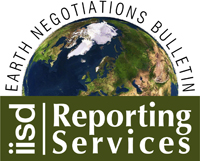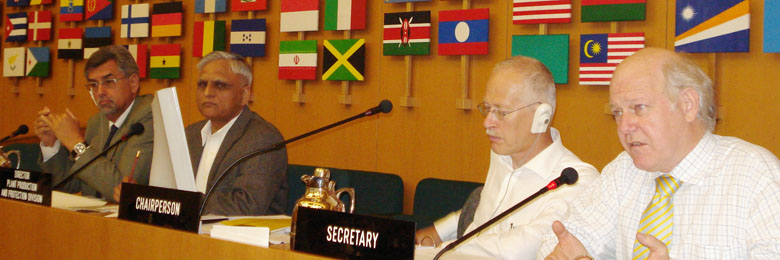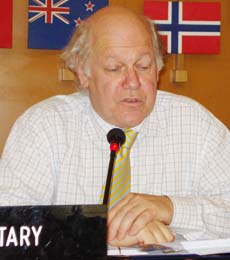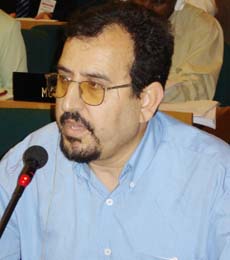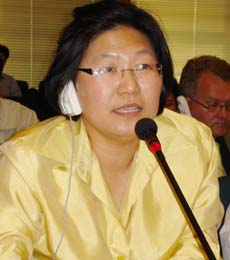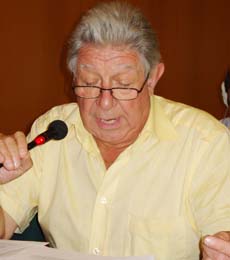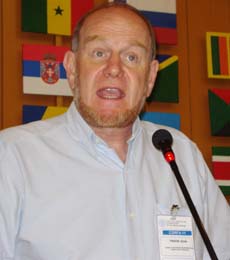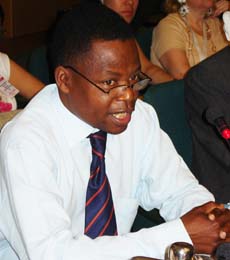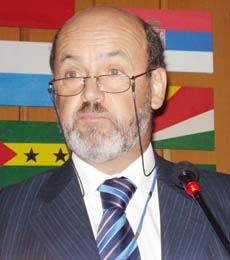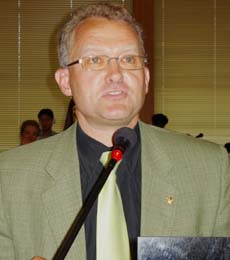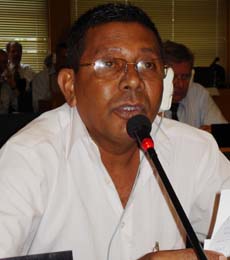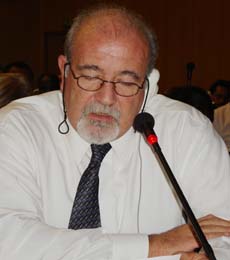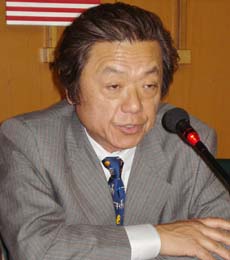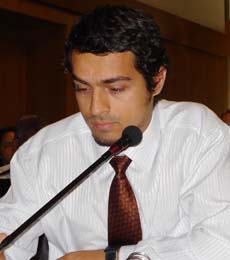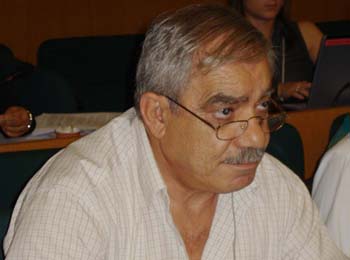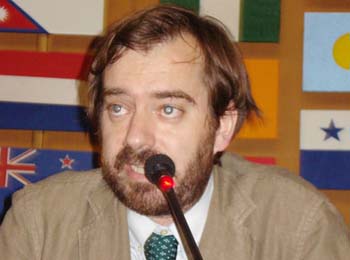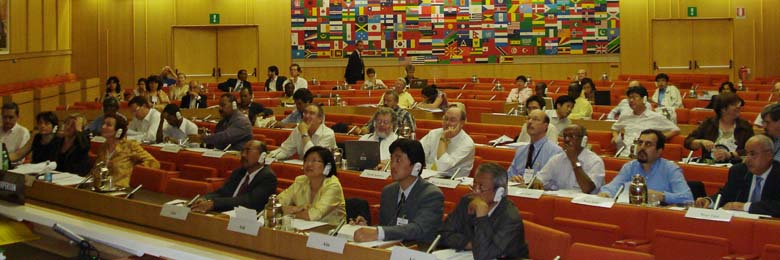|
m
|
t
|
w
|
t
|
f
|
s
|
s
|
Wednesday, 13 June - Thursday, 14 June - Friday, 15 June
|
CGRFA-11 HIGHLIGHTS On Wednesday, delegates to CGRFA-11 convened in morning and afternoon plenary sessions to address: the draft code of conduct on biotechnology as it relates to genetic resources for food and agriculture; guiding principles for the future harvest centers to address the possibility of the unintended presence of transgenes in ex situ collections; and the status and needs of other biodiversity-related matters under the mandate of the Commission. In relation to the last of these, delegates considered three of the five cross-sectorial matters listed for discussion: forest genetic resources; aquatic genetic resources; and micro-organisms and insects. The remaining two cross-sectorial matters will be addressed in plenary on Thursday. In the evening, a small "MYPOW Committee" convened to commence consideration of the Commission's draft multi-year programme of work. At this session, the six FAO regional groups were each represented by four countries: Eritrea (Vice-Chair), Angola, Central African Republic and Nigeria for Africa; Thailand (Vice-Chair), Indonesia, Japan and Malaysia for Asia; the Netherlands (Chair), Norway, Poland and Spain for Europe; Ecuador (Vice-Chair), Argentina, Cuba and Jamaica for Latin America and the Caribbean; Iran (Vice-Chair), Egypt, Sudan and Syria for the Near East; the US (Vice-Chair) and Canada for North America; and Australia (Vice-Chair), Papua New Guinea, the Solomon Islands and Tonga for the South-West Pacific. Committee members focused their deliberations on three questions: which issues to prioritize within each sectorial and cross-sectorial matter; the timing and means by which preparatory activities for each aspect of the MYPOW should be commenced; and which organizations the Commission and the FAO should cooperate with in relation to each sectorial programme and cross-sectorial matter. Evidencing the high level of interest in this agenda item, many countries not members of the MYPOW Committee attended the session as observers. As per previous days, several side events were held during the lunch break and delegates met in regional groupings throughout the day.
|
|||
On Wednesday morning, delegates discussed progress on the draft code of conduct on biotechnology as it relates to genetic resources for food and agriculture.
Álvaro Toledo, Commission Secretariat, introduced the report on the status and needs of micro-organisms and insects for food and agriculture.
In the evening, a small “MYPOW Committee” convened to commence discussion of the Commission’s draft multi-year programme of work.
|
Related links
|
|||
|
|
|
|
|
